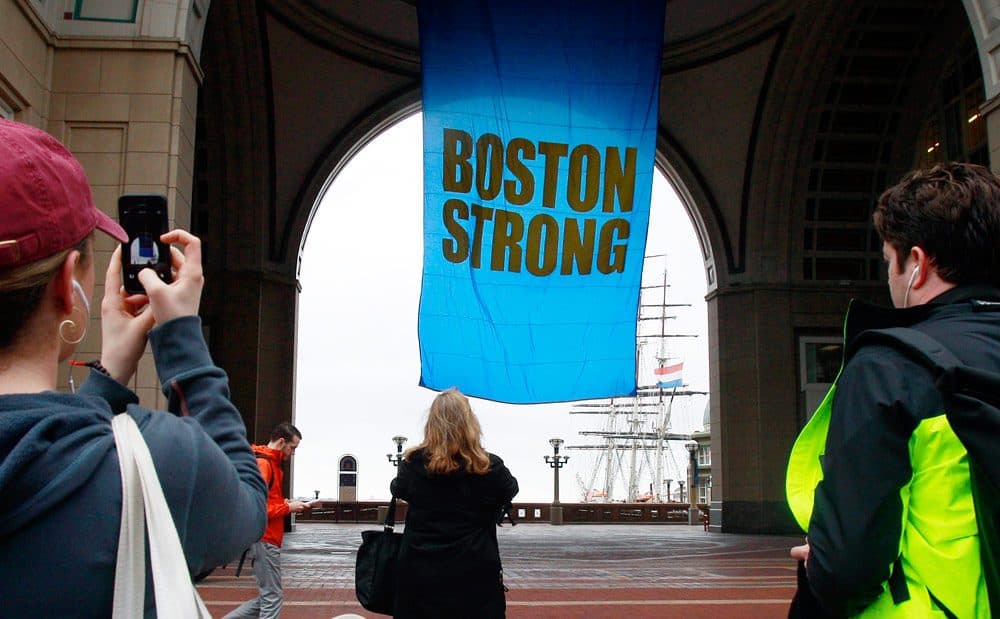Advertisement
Boston Hospitals Reflect With Pride On Marathon Bombing Response
Resume
Early in the afternoon last April 15, Dave Reisman was laughing as he left a meeting to update hospitals around the city about conditions at the Boston Marathon. It looked like a light year for patients. The weather was sunny, but not too hot.
Reisman, an emergency preparedness director at Mass General, told a group gathered Tuesday to review lessons learned the day of the bombings that he will never forget walking out of that meeting, hearing his pager go off, and reading the message.
"Reports of explosive devices in Copley Square: one detonated, another suspected," Reisman recalled the message saying. MGH treated 97 patients that afternoon, in an emergency room equipped to handle 44.
"The environment in the [emergency department] was intense," said Maryfran Hughes, nursing director for emergency services. "Many people were arriving and people didn’t know what was going on. The professionalism and compassion of the nurses really transcended their own fears. They didn’t know what was happening out there."
None of the Boston hospitals, including MGH, lost a patient that day or in the days and weeks that followed, even though the pressure did not let up. Trauma surgeon David King says for hospital staff, it was a marathon week.
"After Monday, you think there’s no way I can come back and do this on Tuesday, and then after Tuesday you think there's no way I can come back and do this on Wednesday," King said. "And then the president wants to visit and you think, there's no way we can squeeze that in on top of taking care of all the patients, and then Friday comes."
That was the day Gov. Deval Patrick ordered all Boston area residents to "shelter in place." At Mass General, that meant keeping day patients and their companions in house. The hospital prepared to feed 5,000 more people than expected.
"Friday was as much an activation of our emergency operations plan as Monday was," said Dr. Paul Biddinger, chief of emergency preparedness.
Biddinger says the hospital has created a new messaging system for its 26,000 employees in the event there is another time when the hospital must let staff know who is needed, when and for how long.
The hospital continues to test its emergency response plan, including this past February when it ran a simulated hazardous materials disaster, decontaminating patients at 4 a.m. outside the hospital when the temperature was 9 degrees. It all goes back to last year's marathon.
"One take home message for me from that whole week is that the emergency operations plan works," Biddinger said. "No matter what the threat is that we’re facing."
So next Monday, MGH and hospitals across the city say they will be ready, which doesn’t mean they won’t be anxious.
